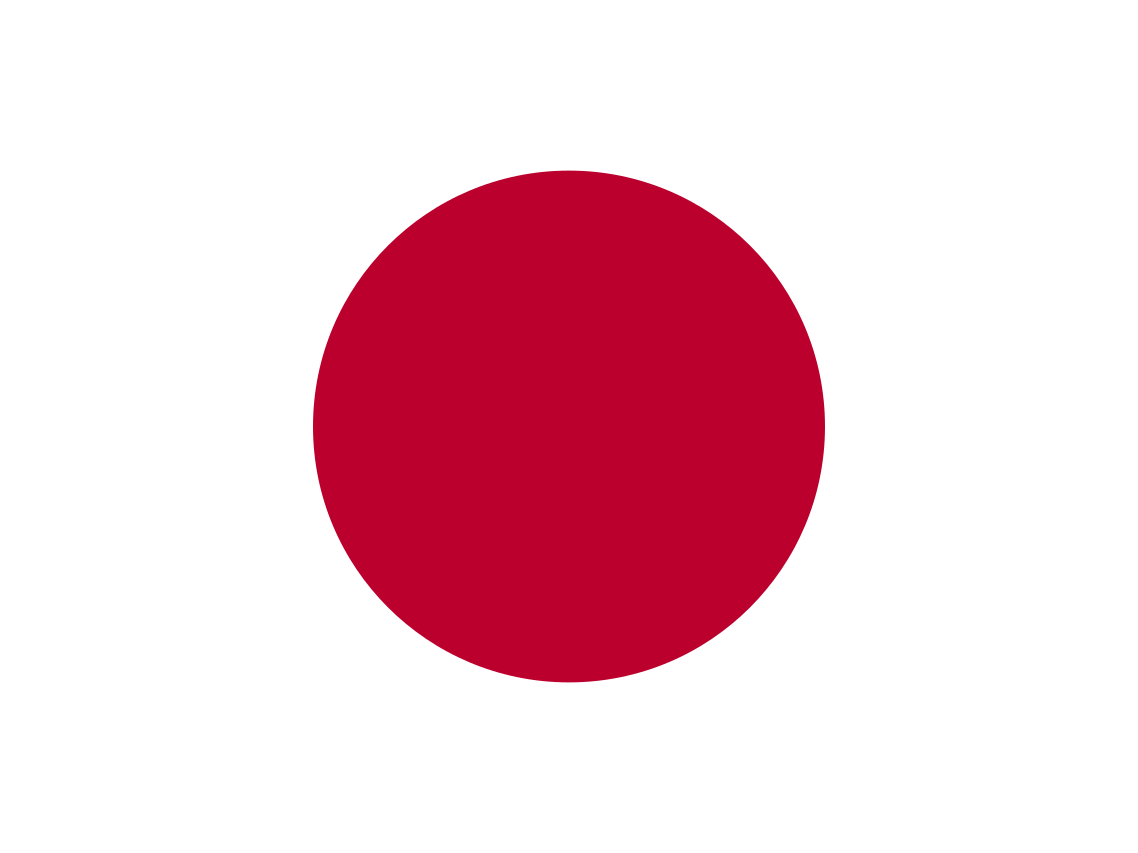Asean Land Banking
KANCHANABURI, GREAT INVESTMENT OPPOTUNITY
Economy of Thailand
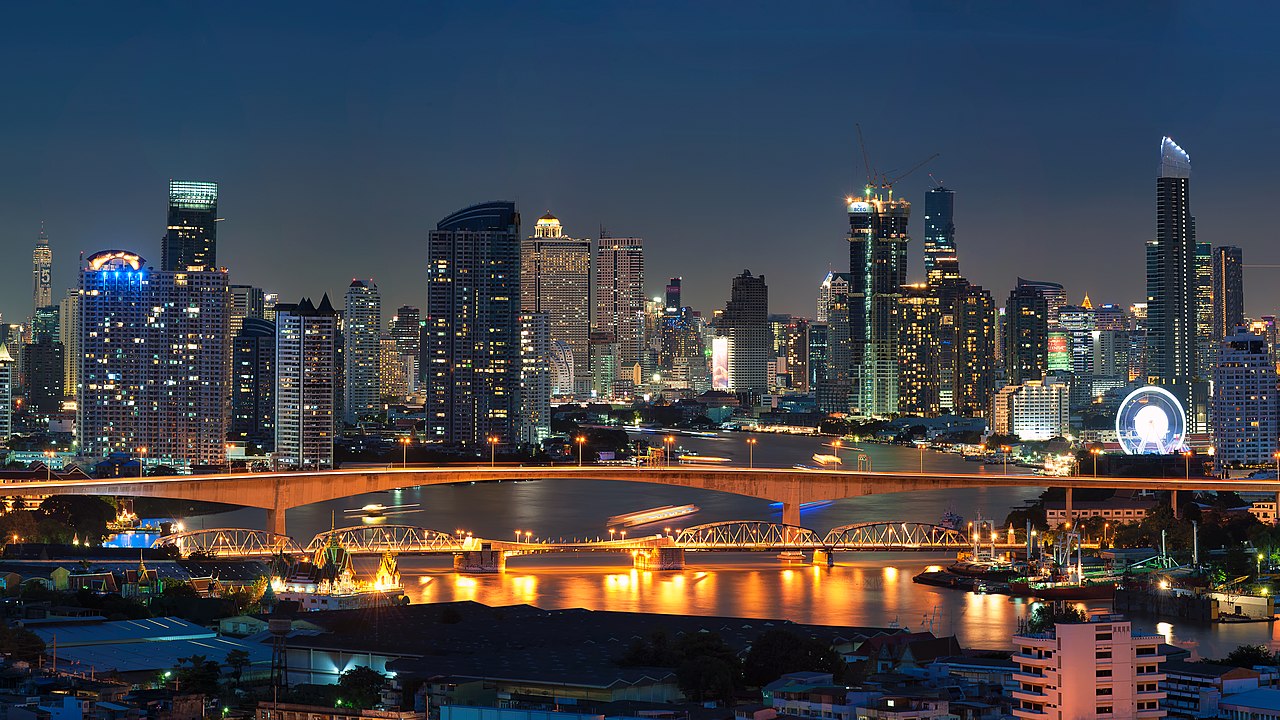
Thailand is a newly industrialized country. Its economy is heavily export-dependent, with exports accounting for more than two-thirds of its gross domestic product (GDP). In 2017, according to the IMF, Thailand had a GDP of 15.450 trillion baht (US$455 billion), the 8th largest economy of Asia. Thailand has a headline inflation rate of 3.02 percent and an account surplus of 0.7 percent of the country's GDP. Thai economy is expected to post 4.1% growth in 2018. Its currency, Thai Baht, also ranked as the tenth most frequently used world payment currency in 2017.
The industrial and service sectors are the main sectors in the Thai gross domestic product, with the former accounting for 39.2 percent of GDP. Thailand's agricultural sector produces 8.4 percent of GDP—lower than the trade and logistics and communication sectors, which account for 13.4 percent and 9.8 percent of GDP respectively. The construction and mining sector adds 4.3 percent to the country's gross domestic product. Other service sectors (including the financial, education, and hotel and restaurant sectors) account for 24.9 percent of the country's GDP. Telecommunications and trade in services are emerging as centers of industrial expansion and economic competitiveness.
Thailand is the second-largest economy in Southeast Asia, after Indonesia. Its per capita GDP (US$6,729) in 2017, however, ranks in the middle of Southeast Asian per capita GDP, after Singapore, Brunei, and Malaysia. In July 2018, Thailand held US$237.5 billion in international reserves, the second-largest in Southeast Asia (after Singapore). Its surplus in the current account balance ranks tenth of the world, made US$49.2 billion to the country in 2017. Thailand ranks second in Southeast Asia in external trade volume, after Singapore.
About Kanchanaburi
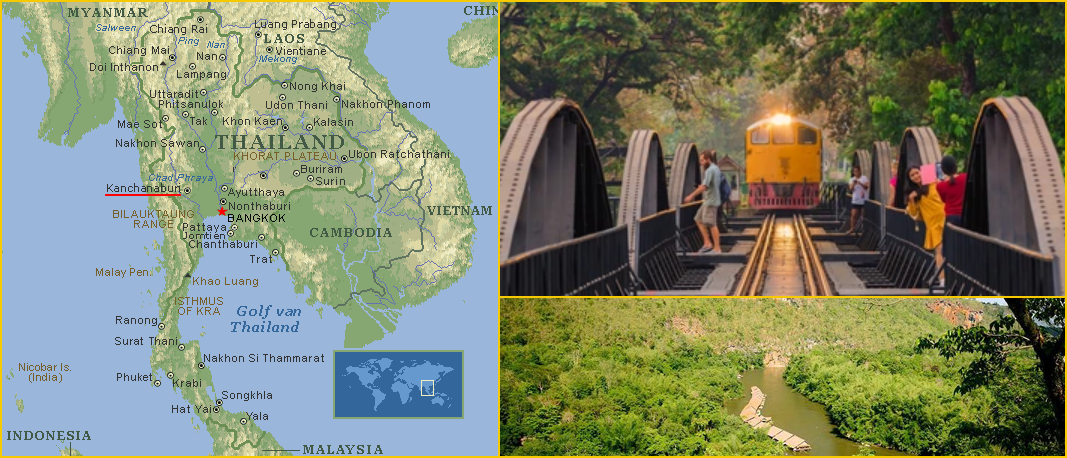
Kanchanaburi province, mostly mountainous terrain, covers an area of approximately 19,473 square kilometers and is the 3rd largest province in Thailand after Nakhon Ratchasima or Ko-Rat and Chiang Mai relatively. Situated approximately 129 kilometres west of Bangkok, Kanchanaburi shares a border with Myanmar to the west, Tak and Uthai Thani Provinces to the north, Suphan Buri and Nakhon Pathom Provinces to the east, and Ratchaburi Province to the south.
In north and west Kanchanaburi, the terrain is comprised mainly of mountains and high plains, with the Thanon Thongchai Range acting as a natural border between Thailand and Myanmar. The range is the source of Kanchanaburi’s two most important rivers Maenam Khwae Noi and Maenam Khwae Yai, which form the famous Mae Klong River. As a result, several of Thailand’s largest waterfalls and most extensive wildlife sanctuaries are found in this area.
In economic terms, Kanchanaburi has been doing well on a national scale, with over 10 per cent growth annually. Important industries include sugar, agricultural products and jewelry. Tourism is also a main source of income for the locals as the provinces high tourism potential has made Kanchanaburi number one among the west provinces in having the highest number of visitors each year.
Important economic path in the future
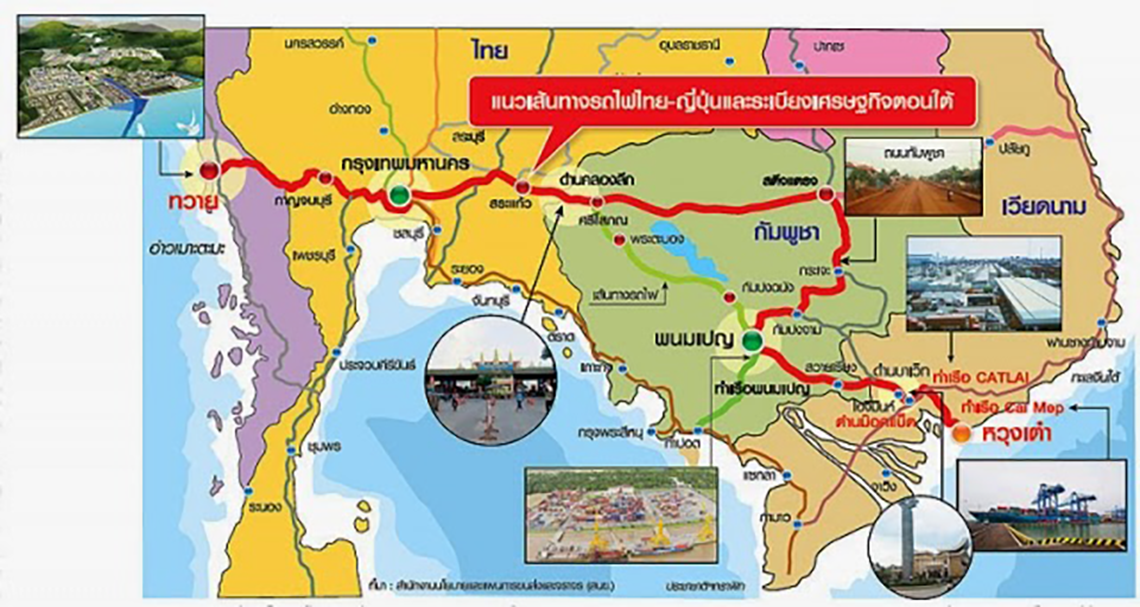
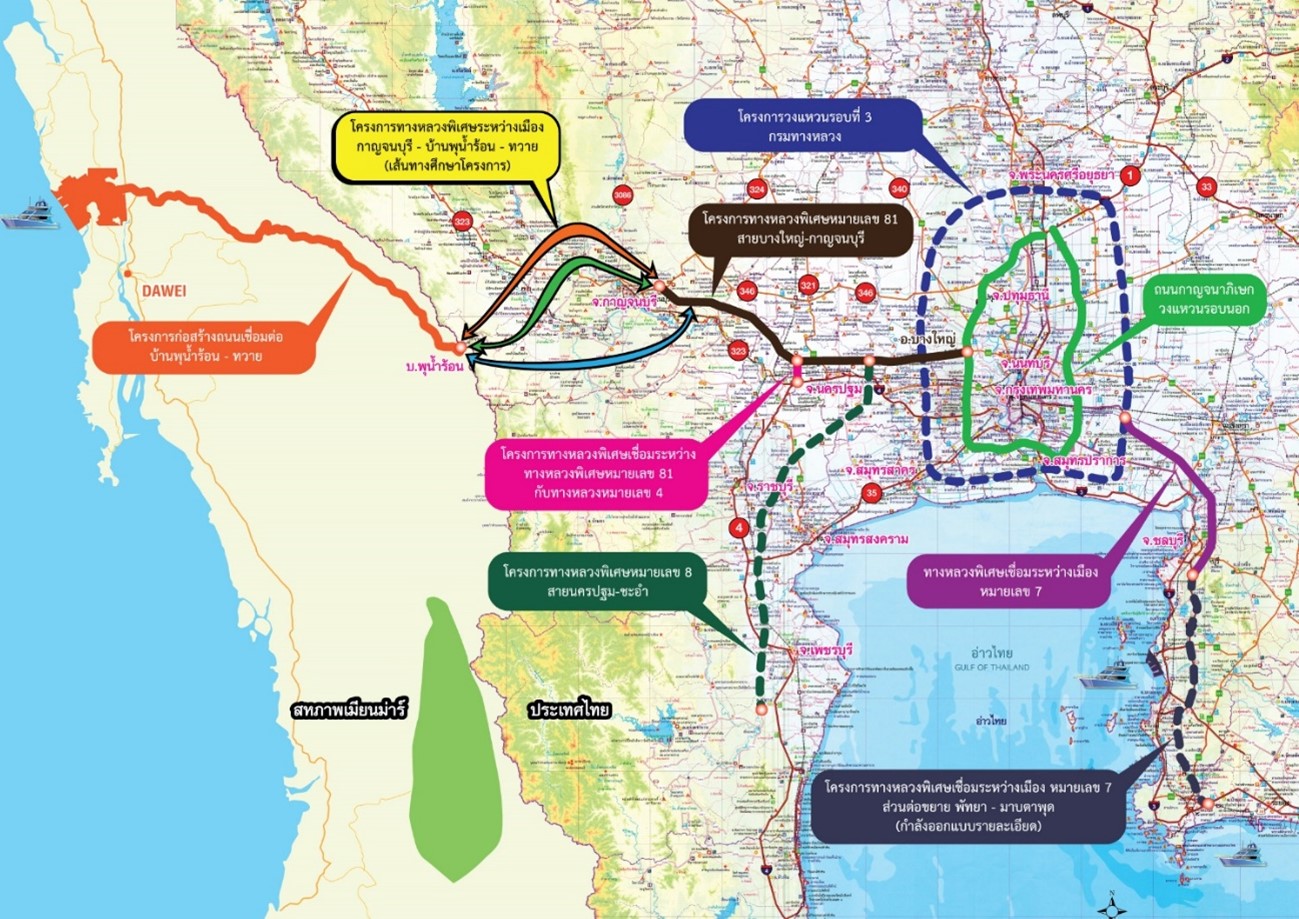
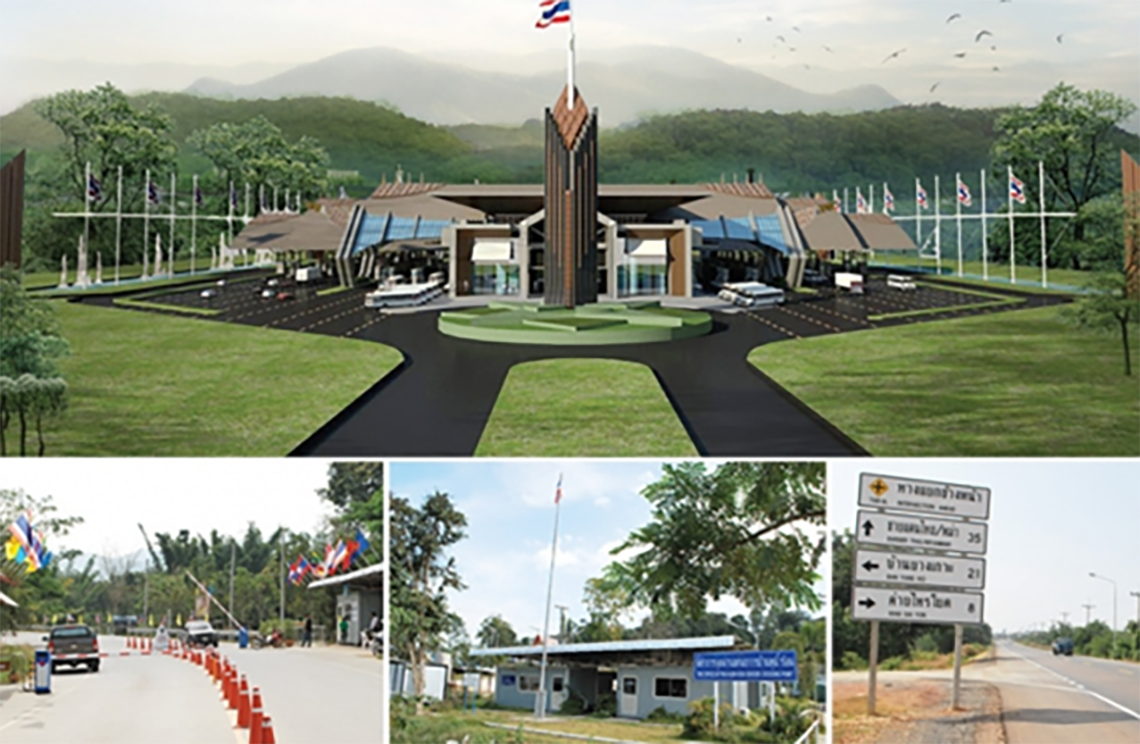
"Baan Nampu Ron - Bangkok - Aranyaprathet - Laem Chabang" connect Trade, Investment, Tourism in 3 countries of Thailand - Cambodia – Vietnam
Kanchanaburi, a major economic city, is developing in every direction to support the investment projects of Thailand and Myanmar. Especially the Dawei Deep Sea Port Project, will give Thailand benefits in transportation, trade, logistic, and tourism. From now on, Kanchanaburi will become "New Economic Corridor" logistics hub and the western trade gate linking the southern economic corridor.

Motorway Bang Yai, Nonthaburi - Kanchanaburi project, the important part of this New Economic Corridor is scheduled to open in 2019.
Southern Economic Corridor
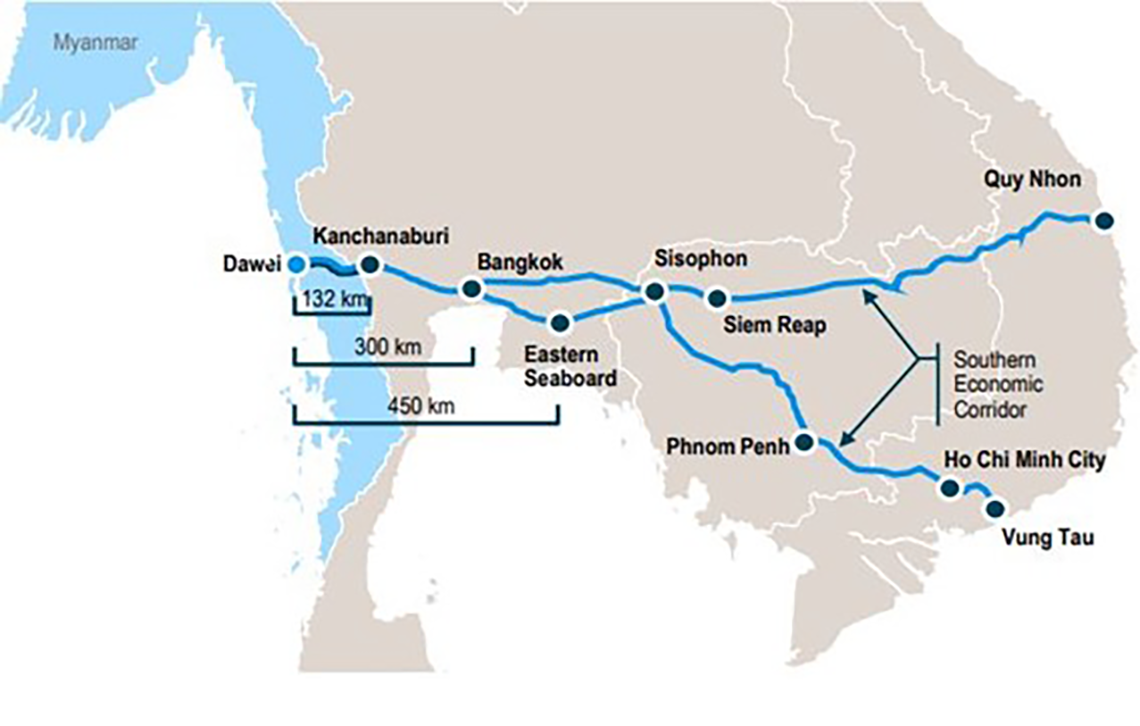
Situated in southern Myanmar, near the border of Thailand is a place called Dawei. In 2008 a major construction project started, the project was to link Dawei to the Kanchanaburi province, 119 km northwest of Bangkok. This construction would link production in the southern economic corridor, and will help both countries enter into the supply chain of globally important industries.
Since launching the ASEAN Economic Community at the end of 2015, the Association of Southeast Asian Nations has produced any number of cross-border transportation plans designed to enhance economic integration in the regional bloc. Much progress has been made on arterial highways running east-west and north-south through the greater Mekong River region -- including the Southern Economic Corridor.
Myanmar, Thailand and Japan agreed in 2015 to jointly develop a special economic zone at Dawei. Once the project -- a deepwater port and an industrial park -- and the highway are complete, businesses in Thailand and its neighbors will be able to move goods to the Indian Ocean without traversing the narrow, crowded Strait of Malacca. This will benefit companies such as Japanese automakers with large operations in Thailand, expanding export opportunities to India, the Middle East and Africa.
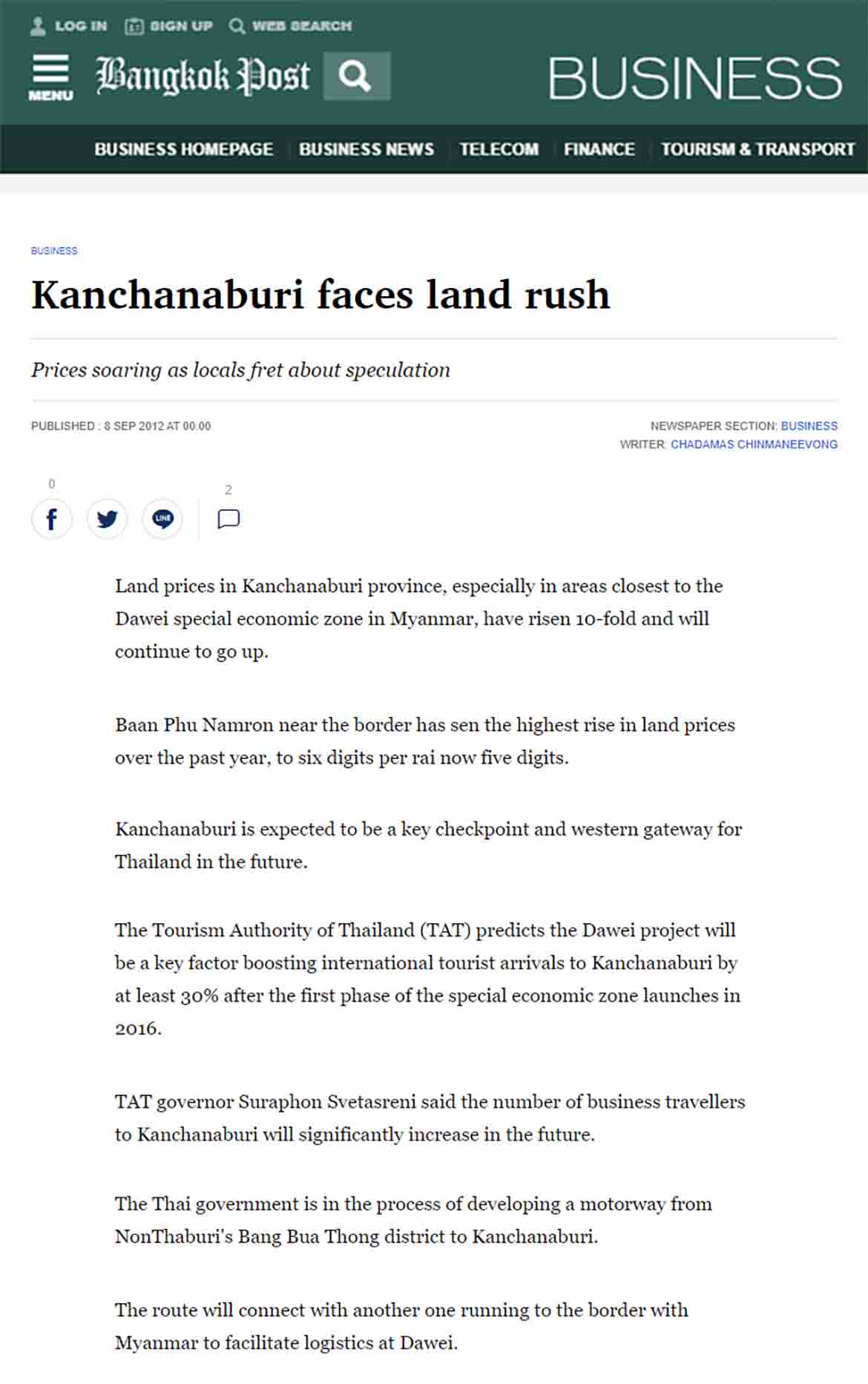
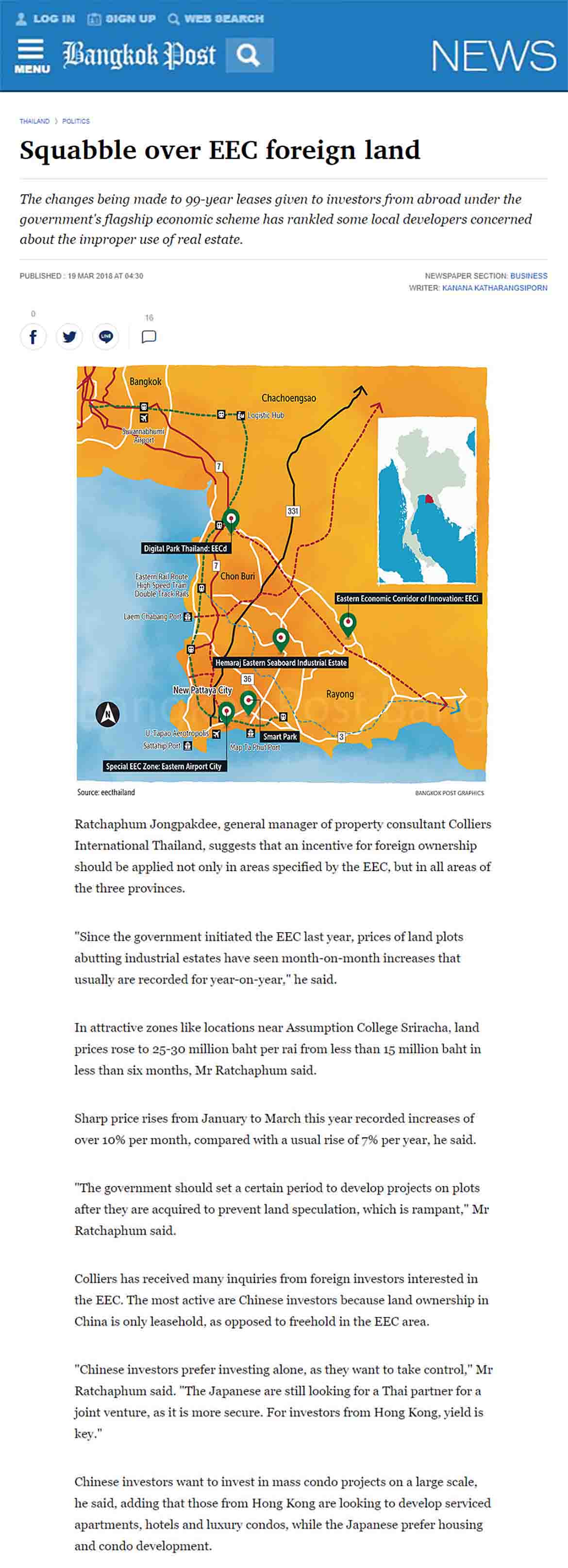
if you interested in investing lands in Kanchanaburi province in Thailand, please contact info@srcsgroup.com
Legal and Disclaimers
Site Content
This website has been prepared to provide information on the products and services offered by Glory Typhoon Co., Ltd.. (“The company”). By accessing this site, you are agreeing with the terms and conditions set out below. If you do not agree with the terms, please do not access this website.
Information on this website will be subject to change without notice. The company will endeavor to ensure information is accurate and updated, but will not be held liable for inaccuracies in the information presented. Investors are responsible to ensure that they are appropriate information about gold, taxation or other legislation that could affect them personally.
The company including affiliated companies is not liable or responsible to any person for any harm, loss, damage, proceedings, costs, claims, liabilities, damages and expenses connection with your use of this website.
No Advice
The content of this website is for informational purposes only and is not intended to provide financial, legal, accounting or tax advice, and shall not be relied upon by you in that regard.
No Solicitation
Nothing on this website constitutes a solicitation or offer by the company to buy or sell gold asset or any other products.
The company does not make any representation that the information in any linked site is accurate and will not accept any responsibility or liability for any inaccuracies in the information or content of any linked site. Any opinion or advice expressed in a linked site including our financial consultant advices, should not be construed as, and may not reflect, the opinion or advice of the company.
Disclaimer of Warranty
The site is provided on an “as is” and “as available” basis. To the maximum extent permitted by law, the company hereby disclaims any and all representations, warranties or conditions of any kind, whether expressed or implied, with respect to this website and information, products, content and other materials contained herein, including without limitation implied representations, warranties or conditions of title, non-infringement, merchantability, fitness for a particular purpose, performance, durability, availability, timeliness, accuracy, or completeness.
Security
You acknowledge and confirm that the Internet is not a secure medium where privacy can be ensured and complete security and confidentiality over the Internet is not always possible. Your confidential use of this site cannot be guaranteed, and you acknowledge that your use of the site (including personal information transmitted or uploaded to the website) may be accessible to third-parties. The company is not responsible or liable for any harm that you may suffer in connection with a breach of confidentiality or security.
Privacy
The company uses personal information provided on this site for business purposes only. Refer to our Privacy Policy for more information on our personal information practices.
The company may use "cookies" or related technology to track your usage of the site to help improve our service and your experience.
Governing Laws
The Thai laws govern the interpretation, validity and effect of these terms and any use of the site.


